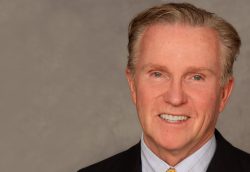Mandatory reporting, or forcing doctors to report to the relevant authorities if one of their colleagues comes to them for help and is deemed to be impaired, was overtly designed to protect the public from unscrupulous or otherwise impaired doctors and other health professionals, and this of course is needed. But what the system as it stands has actually done is to divide the profession and destroy our trust in each other, and it deters doctors from seeking help when they realise they need it, ironically putting themselves and the public at even greater risk.
After yet another spate of doctor suicides, The NSW president of the AMA, Professor Brad Frankum, published a letter in February 2017 stating that:
“It is clear to me that provisions such as mandatory reporting are stopping doctors and students from accessing care, or are making them fearful of the consequences if they do require support. We have to change this because it is not making our doctors or our patients safer.” (1)
This is the heart of the problem. Mandatory reporting does not make our doctors or our patients safer. Who then does it benefit?
What is mandatory reporting?
The Medical Board of Australia’s website states that:
“The National Law requires practitioners, employers and education providers to report ‘notifiable conduct’, as defined in section 140 of the National Law, to AHPRA in order to prevent the public being placed at risk of harm.” (2)
What is notifiable conduct?
Section 140 of the National Law defines ‘notifiable conduct’ as when a practitioner has:
- practised the practitioner’s profession while intoxicated by alcohol or drugs; or
- engaged in sexual misconduct in connection with the practice of the practitioner’s profession; or
- placed the public at risk of substantial harm in the practitioner’s practice of the profession because the practitioner has an impairment; or
- placed the public at risk of harm because the practitioner has practised the profession in a way that constitutes a significant departure from accepted professional standards. (2)
Are there any exceptions to this requirement?
There are particular exceptions to the requirement to make a mandatory notification for practitioners. Legal professionals, insurance professionals and administrative professionals are exempt from this requirement, but the doctors to whom our fellow health professionals turn for help are not, unless they live in Western Australia, as a result of which, doctors are travelling to WA for medical care.
If a ‘normal’ person is struggling and comes to a doctor for help, they are entitled to our care and to be treated with utmost confidentiality. If a doctor comes to us for help, and we deem them to be impaired in some way, mandatory reporting asks us to hand them over to the modern-day version of the Inquisition. There is now a great deal of confusion around what is and is not a reportable situation, and many doctors live in fear of being reported, especially as the consequences are becoming more and more immediate and dire.
This provides no incentive for doctors to seek help early on, before harm is done to themselves and to others. I know doctors who are struggling and in need of support and would love to have professional help, but who are self-medicating and struggling on alone for fear of being stripped of their right to practice, and their professional livelihood and reputation.
I would not have sought help if there had been mandatory reporting
I know that when I was a young and struggling doctor, I turned to my doctor for support in the full knowing that I would be treated with care and confidence, and am pretty sure that I would not have sought help as early as I did, if I had thought that it would jeopardise my training position and career. I came out the other side of my own personal hell, to be the great doctor and very loving person I am today, but my best friend did not fare so well and took her own life soon after, so I know all too well the cost of trying to struggle on in a system that does not support you.
Mandatory reporting increases the risks of doctors practising when impaired
Mandatory reporting is actually increasing the personal and professional risk to vulnerable doctors, and therefore to everyone they treat, and is creating a situation of secrecy and shame, which all too often ends in self-harm, and ultimately for some, in suicide.
We need to be able to be open and honest if we are struggling. We need to be able to seek help without fear of punishment. We need to receive help that is not laced with retribution.
Doctors are people too, and it is high time we started treating ourselves and each other with the compassion, tenderness, even love, that we all deserve and yearn for.
We are not designed to do this alone. We are designed to live in brotherhood, and to support each other…yes, even doctors!
The medical system, including the great ill of mandatory reporting, is as cruel and heartless as we have allowed it to become because we have not yet stood together, for ourselves, for each other and for the people we love and serve – our patients and our community.
Are the mandatory reporting guidelines outdated?
These guidelines were issued on 17 March 2014 and last reviewed in September 2013.
The Medical Board’s own website states that:
“These guidelines will be reviewed from time to time as required. This will generally be at least every three years.”
This review is therefore long overdue and it is high time that the guidelines were brought back into line with those we used to work with and which continue to work well in Western Australia, being as follows:
“Practitioners in Western Australia are not required to make a mandatory notification when their reasonable belief about misconduct or impairment is formed in the course of providing health services to a health practitioner or student. However, practitioners in Western Australia continue to have a professional and ethical obligation to protect and promote public health and safety. They may therefore make a voluntary notification or may encourage the practitioner or student they are treating to self-report.” (2)
Our own colleagues are starting to be more vocal about this issue. In a recent interview (3), Dr Ewen McPhee, Head of the Rural Doctors Association of Australia, said that:
“Mandatory reporting is part of the problem; it is in fact contributing to the deaths of doctors.”
and
“I don’t understand why we need to treat doctors differently from anyone else who is suffering.”
And the President of the Australian Medical Association, Dr Michael Gannon, said:
“We can point to successful application of the law in WA. This was recommended by an independent inquiry. It is the preferred model of the AMA and most other health bodies.”
and
“Removal of mandatory reporting does not remove the requirement for a treating doctor in WA to report a doctor who is a danger to themselves or to a patient. What it does do is give doctors the comfort of knowing they can seek help, perhaps at the early stage of impairment, so that it doesn’t get any worse, without fear of recrimination for their career.” (3)
So what’s the alternative to mandatory reporting?
We all know that mandatory reporting is not working and if anything, it is making matters worse in terms of the health and wellbeing of doctors, and therefore the wellbeing of patients we care for. But what is the alternative?
Our guiding principle is to “first, do no harm”. This is not only for the patients we serve, but for doctors and patients alike.
Of course, none of us wants to be or to see an impaired doctor in practice who is not caring for themselves and therefore not capable of truly caring for others.
But how do we help them to get back on track without destroying them as a person and a professional, which is what the current system appears to do?
The answer requires nothing less than a complete systematic change in the way we view ourselves, each other and medicine itself.
Medicine is incredibly competitive. We are pitted – and pit ourselves – against each other from the beginning of our training, competing for places in medical training, academic honours, places in speciality training, jobs, research positions, and on it goes. We are always competing.
This breeds a dog-eat-dog, winner-takes-all culture which fosters secrecy. And so if we are struggling, we don’t feel able to be honest and open and share this with another, for fear of being judged as being less, of missing out, of losing something we have worked so hard for.
Keeping up appearances in this way, no matter how we are feeling, is exhausting and cannot be sustained naturally, so it is no wonder that some of us turn to substances to keep us going when we are exhausted, substances to seek relief from the tension we feel, behaviours that are not appropriate, and all the various mechanisms that lead to us being impaired.
To truly change all this, we must start being much more honest, open and transparent, with ourselves and each other. Start sharing how crushing it feels to work in a system that tries to dehumanise you as a person; that asks you to override your basic needs for food, drink, rest, sleep and a social life away from work; that asks you to compete with people who are your fellow brothers.
We are not designed to do this alone: we are designed to work together, supporting each other. The current perception that medicine is a competition that you can somehow win is a lie, and one that is destroying us as practitioners of the noble art that is Medicine.
We are here to serve people – and those people include one another. If we stumble and falter, we are here to help each other up, to support each other, to offer wise counsel, genuine care and whatever treatment may be needed.
And if, as a last resort, our colleagues remain stubborn and refuse to see that they are impaired or that they need help, by all means take matters out of their hands, but this should not be the basic premise from which we operate.
If we work with the guiding principle “First, do no harm” and let that principle guide the way we live our own lives, we will live in a way that will not need to be reported to anyone, but which may serve as a living way that inspires others.
References:
- Mandatory reporting is contributing to doctor suicide http://www.medicalobserver.com.au/medical-news/psychiatry/mandatory-reporting-is-contributing-to-doctor-suicide#comment-12910
- Guidelines for mandatory notifications, Medical Board of Australia http://www.medicalboard.gov.au/Codes-Guidelines-Policies/Guidelines-for-mandatory-notifications.aspx
- Doctors call for national exemption to mandatory reporting laws http://www.abc.net.au/radio/programs/worldtoday/mandatory-reporting-laws-contributing-to-doctor-suicides/9007640










I fully support the opinions expressed. We all need to support each other and protect the public at the same time. Best wishes,
Fabulous article Anne. It is great to read that there is model being in used in WA that does not involve mandatory reporting. It is common sense that if you fear being reported you will avoid seeking help, which can escalate issues that could be healed with early support. It also fosters a belief that doctors need to be above having issues. This must be an enormous strain for doctors as they clearly are people who can have trauma and stress in their lives like anyone else. Removing mandatory reporting feels like a step towards restoring compassion and care to medicine from the inside out.
Doctors have been set up by the system as a ‘God’ which traps them on a pedestal where sharks are circling to attack should they show any signs of being less. I know this sounds harsh but it feels true. Doctors who are firstly beautiful, compassionate, caring people who step into this career to support others. This system lacks the foundation of lovingly holding these people and caring for them through this chosen pathway in life. The system needs to change.